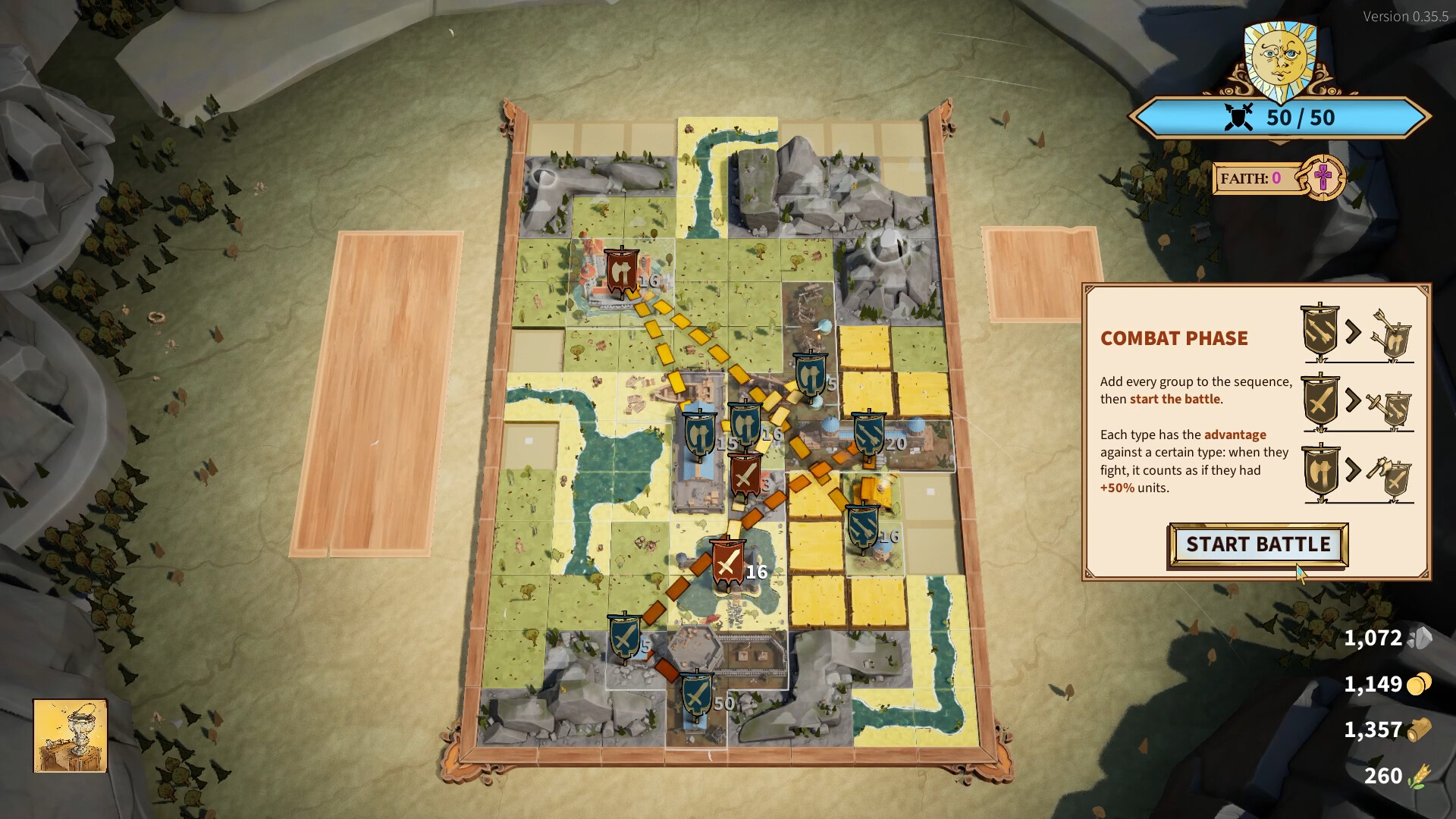Every game is a roguelike deckbuilder now, but I've finally found a few that have stopped me being a hater
There are probably still too many of them, though.

Keep up to date with the most important stories and the best deals, as picked by the PC Gamer team.
You are now subscribed
Your newsletter sign-up was successful
Want to add more newsletters?

Every Friday
GamesRadar+
Your weekly update on everything you could ever want to know about the games you already love, games we know you're going to love in the near future, and tales from the communities that surround them.

Every Thursday
GTA 6 O'clock
Our special GTA 6 newsletter, with breaking news, insider info, and rumor analysis from the award-winning GTA 6 O'clock experts.

Every Friday
Knowledge
From the creators of Edge: A weekly videogame industry newsletter with analysis from expert writers, guidance from professionals, and insight into what's on the horizon.

Every Thursday
The Setup
Hardware nerds unite, sign up to our free tech newsletter for a weekly digest of the hottest new tech, the latest gadgets on the test bench, and much more.

Every Wednesday
Switch 2 Spotlight
Sign up to our new Switch 2 newsletter, where we bring you the latest talking points on Nintendo's new console each week, bring you up to date on the news, and recommend what games to play.

Every Saturday
The Watchlist
Subscribe for a weekly digest of the movie and TV news that matters, direct to your inbox. From first-look trailers, interviews, reviews and explainers, we've got you covered.

Once a month
SFX
Get sneak previews, exclusive competitions and details of special events each month!
People don't appreciate how challenging it is to be a hater. I often find myself chatting to absolutely lovely people getting excited about a cool game, and I just want to let them enjoy it. But I can't. I am the worst kind of person, and I must make them aware that this thing actually sucks. I am miserable and I must make everyone else miserable too. It's a real burden.
But this is a redemption story.
I used to enjoy roguelikes and deckbuilders. Sometimes together. Sometimes separately. But after a while the exhaustion set in. A cavalcade of daily press releases about yet another one coming to early access, mostly doing the same thing as all the others. Granted, this is a game journalist problem. Most of you don't have inboxes bursting with identical press releases. God, you're lucky. Regardless, I got tired.
But this has slowly started to change as roguelike deckbuilders bleed into new genres—games that favour more big-picture strategy, management and city building. Now my groans have turned into more pleasant noises, ones of satisfaction. I've changed my tune.
9 Kings
9 Kings, currently in early access, is a flipping delight. You start with a small grid—your kingdom—and use cards to plonk down units and buildings, which you'll use to defend your tiny crown from unruly monarchs who want to destroy you. Why are they so aggro? I dunno, but I guess space is at a premium in 9 Kings and they really need your little grid.
Your brave little warriors and stalwart buildings can be upgraded simply by grabbing a copy of the card and placing it over them, and you can further augment them with spells that can give them brand new abilities. Some buildings also have powerful adjacency bonuses, too, encouraging a lot of shuffling the grid around to make the most effective kingdom in the land. The grid can also be expanded through various means, but the game's just stingy enough that managing your limited space is always a concern as you try to make the most efficient—and powerful—layout.
Each king has a bespoke deck, but you can get cards from other themes as you duke it out, creating a pleasing variety of potential builds full of rat plagues, demonic imps, healing mushrooms and mobile fortresses. You can make some wonderfully broken configurations .
Keep up to date with the most important stories and the best deals, as picked by the PC Gamer team.
Runs are brisk, the mechanics are simple, but there's actually a whole lot to dig into—it's a balance that's close to perfection. And honestly I just love watching my pixel-sized troops going to war—they're extremely cute as they rip enemy warriors and god-like beings to shreds.
The King is Watching
I've not completely figured out how I feel about The King is Watching, aside from the fact that I'm definitely enjoying it. For the time being.
On the surface it's a lot like 9 Kings. You've got a grid, you plonk down buildings and cast spells, you protect your kingdom from hordes of enemies. But it's a lot less elegant, it lacks 9 Kings' brisk pace, and runs can go on for too long to be without the ability to save. You'll also feel underpowered until you grind, grind and grind.
The RNG can also be crushing. In 9 Kings, I always felt like I was becoming stronger. But The King is Watching could give you a powerful card that you'll never be able to use, simply because its effect has a prerequisite that you'll never be able to fulfill unless the RNG gods bestow an entirely different card upon you.
Despite this, I still kinda love it. A valiant effort has been made to capture the intricacies of management games and builders, with all these co-dependent buildings and tech tree progression systems. And the central conceit, that buildings only function when your gaze is upon them (represented by a highlighted section of the grid) is both stressful and devilishly clever.
That it's real-time and your foes are relentless makes The King is Watching genuinely tricky, so if you're up for a challenge, this might tickle your brain a bit more than 9 Kings.
Drop Duchy
Drop Duchy tackles an ancient problem: what more can we do with Tetris, an already perfect game? As you may have gleaned from the content of this article, the answer is: make it a kingdom-building roguelike deckbuilder. It's not a bad solution, it turns out.
So you're building your kingdom from an assortment of cute tetrominos—all generated from cards in your ever expanding deck—each of which is blessed with a purpose greater than just being pleasingly slotted into gaps in your blocky territory. You've got forests and rivers and buildings, generating resources and troops, and then interacting with each other in surprisingly novel ways. And from here you formulate a plan that, RNG gods willing, will lead to your opponent's demise.
This plan, by the game's very nature, will need to be reactive, as your handy buildings often come with prerequisites relating to the land, and thus the tetrominos, around then. One might require water nearby to generate troops, while another might only pay off if it's surrounded by mountains. And at the end of the round any troops you've mustered must clash with your foe's forces. Which brings me to another crucial wrinkle: you'll be placing enemy tiles too. Each confrontation, then, is a direct result of your own actions. You are your own worst enemy.
It's busier and more complicated than a classic game of Tetris, but critically it still ticks one of the most important boxes: the satisfaction that comes from creating a line. But instead of clearing the tiles, this gives you a resource bonus, and you then get to watch all those precious goodies slide into your inventory. Instead of getting more breathing room, you're getting more tangible rewards, which will in turn make you more powerful by way of the army they let you create.
This trio of excellent deckbuilders have reminded me that even the most closely-related games can offer dramatically different experiences. Though each is a very specific yet extremely similar combination of concepts and genres, the end result in each case is something utterly distinct and novel. This is true of most videogame trends, but it's so easy to forget when you look at them as a broad swathe of infinite press releases and Steam Discover queue recommendations.
In this age of endless new releases—which, let's face it, have mostly been roguelike deckbuilders recently—it is extraordinarily easy to become jaded. Like me. But in this instance, at least, I've gotten better. I am on the road to recovery. I might even play some more roguelike deckbuilders. For pleasure!
Next week I'm sure I'll find a new thing to hate, of course. But for now I'm just going to have some fun.

Fraser is the UK online editor and has actually met The Internet in person. With over a decade of experience, he's been around the block a few times, serving as a freelancer, news editor and prolific reviewer. Strategy games have been a 30-year-long obsession, from tiny RTSs to sprawling political sims, and he never turns down the chance to rave about Total War or Crusader Kings. He's also been known to set up shop in the latest MMO and likes to wind down with an endlessly deep, systemic RPG. These days, when he's not editing, he can usually be found writing features that are 1,000 words too long or talking about his dog.
You must confirm your public display name before commenting
Please logout and then login again, you will then be prompted to enter your display name.





